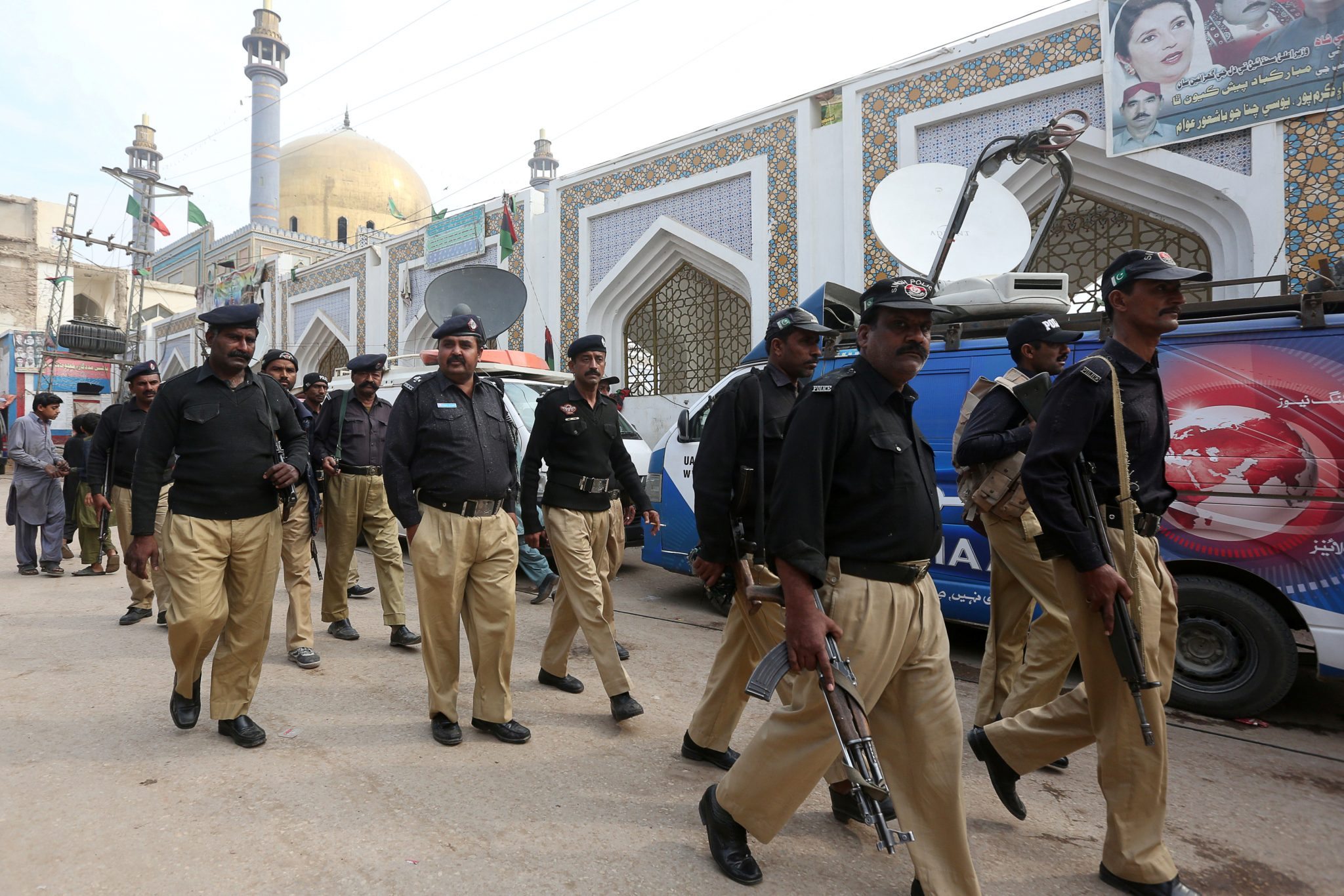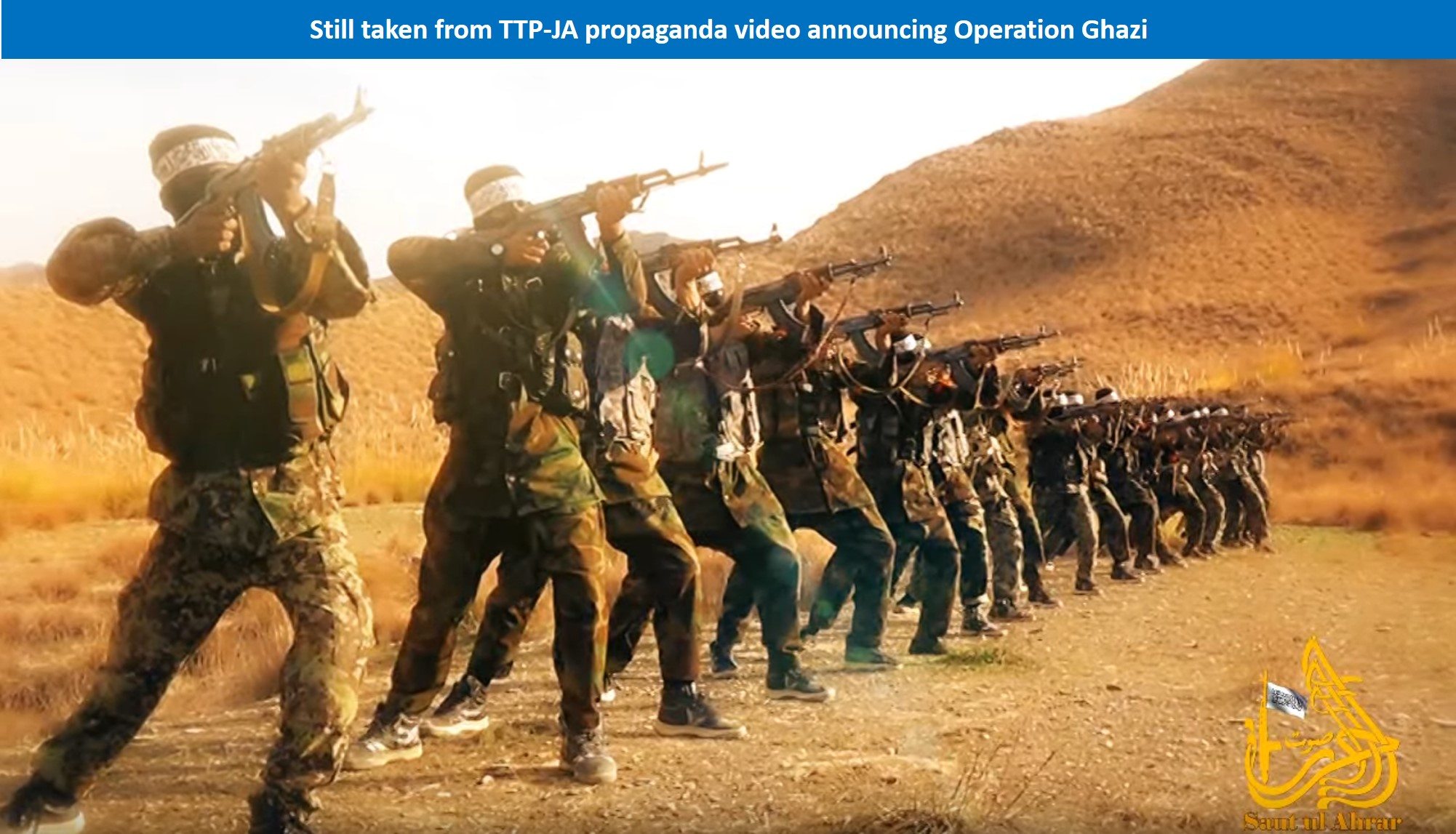Current Situation: Wave of militant attacks in February
On February 10, an offshoot of the Tehreek-e-Taliban Pakistan (TTP), Jamaat ul Ahrar (TTP-JA), announced by video the commencement of a new militant operation in the country titled “Operation Ghazi”. The TTP-JA defined the operation to be conducted largely against their traditional targets of government and security installations, as well as other symbols of the rule of law, including members of the judiciary.
In the weeks that followed, at least 140 people were killed in separate attacks across the country, claimed by a number of different groups. Some of the most high-profile attacks include a suicide bombing in Lahore on February 13, which was later claimed by the TTP-JA; a suicide bombing in Peshawar on February 15, which was claimed by the TTP; a suicide bombing against a Sufi shrine on February 16 that killed upwards of 90 and was claimed by the Islamic State (IS); and a combined suicide and shooting attack that killed seven civilians on February 23 outside of Peshawar, which was also claimed by the TTP-JA. The February 13 and 16 attacks involved individuals walking into crowded areas and detonating explosive vests, whereas the February 15 attacker most likely detonated explosives carried by his motorcycle. The February 23 attack also involved the individuals using gunfire in an attempt to enter a government building before detonating.
In response to the recent wave of attacks, the Pakistan Armed Forces announced the counter-militancy operation Radd-ul-Fassad (“Elimination of Discord”), on February 22. Under the new operation, military and paramilitary forces have authority to “indiscriminately” pursue militant suspects, continue augmenting or assuming functions of local law enforcement and intelligence operations, and expand into the Punjab province. The Pakistan Rangers, who had been conducting extensive operations in Sindh, extended into the Punjab on February 24, in a reversal of local government concerns over giving the military more influence in a ruling Pakistan Muslim League (Nawaz)(PML-N) party stronghold. Whereas the military were previously given limited operational authority in the province in 2016 despite government objections and lengthy negotiations, this new operation was approved relatively quickly by local authorities and grants the Rangers a much wider operational berth in terms of locale and targets. At least 100 suspected militants were reportedly killed by security forces in the first 24 hours of the operations, and hundreds more have been killed or captured to date.
The operation has also been under domestic scrutiny by civil society groups, with scattered reports from the ground indicating that political critics and opposition figures have also been arrested, in addition to protests being held by groups alleging mistreatment of ethnic Pashtuns in Punjab under the Radd-ul-Fasaad banner. Pakistan is home to the largest Pashtun community in the world, with an estimated population of 30 out of 200 million in Pakistan. Despite infrequent high-profile outliers, the Pakistani security apparatus views the peripheral Pashtun population with suspicion due to perceived ethnic ties to Afghanistan, a primary regional adversary and well-known militant incubator.
 Assessments & Forecast
Assessments & Forecast
Claims and methods of attacks suggest nexus between membership of different militant groups in Pakistan, increased operational capacities.
Despite the fact that the abovementioned attacks were subsequently claimed by several groups, the modus operandi and precedence set by attacks before those in February suggest a level of coordination between groups. This is further bolstered by previous assessments of IS using proxies in Pakistan and their lack of a significant operational presence. For example, the February 16 suicide bombing that was claimed by IS was likely actually perpetrated by Lashkar-e-Jhangvi Al Alami (LeJ-A), which boasts an established history of similar attacks against religious minority gatherings and places of worship, as well as having previously coordinated with IS over the October 24, 2016, suicide attack on a Quetta police station. Additionally, the August 8, 2016, suicide bombing attack on a hospital in Quetta was eventually claimed by IS and the TTP-JA. High-profile attacks with multiple claims, or singular claims that referenced other groups, were a relatively common phenomenon throughout the second half of 2016.
This history of convergence highlights continued operational overlap between these groups in the context of the unusually high rate of use of suicide bombings in February, which require a relatively higher level of operational capacity. Whereas groups have usually relied on less sophisticated methods for attacks involving singular claims, the uptick in the use of suicide bombings across the board for attacks with singular claims suggests that inter-group overlap continues in Pakistan with the onset of Operation Ghazi.
FORECAST: Nevertheless, ongoing efforts against organized militant outfits will likely focus on limiting their capacity for such high-casualty attacks, at least in the near future. Consequently, groups such as the TTP are liable to augment current operations with lower intensity methodologies, including targeted sectarian killings in urban areas, or motorcycle-borne gunman ambushes and IED attacks against security forces in the periphery. Such waves of multiple high-casualty attacks, such as that witnessed in February, are normally interceded by relative lulls, which may be marked by more infrequent attacks taking on forms as described above. As previously mentioned, likely targets include police patrols, military checkpoints, protest rallies due to the high civilian presence, and minority institutions and events.
Operation Radd-ul-Fassad has expanded the influence of the military, although their efficacy is questionable.
While the focus of Radd-ul-Fassad is ostensibly in the tribal border areas where the militant density is thought to be highest, the military has also been able to increase its authority in areas such as Punjab, an area where it normally saw resistance from the PML-N. Furthermore, the military appears to be using Radd-ul-Fassad, at least in part, as a pretext for a crackdown on dissenters and the Pashtun minority, which relates more to longstanding positions held by the military that precede the operation.
FORECAST: Pushback against the perceived excesses of the operation are likely to result in fresh demonstrations from groups who see themselves as being marginalized, including political opposition groups and Pashtun organizations. Protests of this nature have already materialized in Karachi and can be further expected in tribal provinces with high Pashtun densities such as the Federally Administered Tribal Area (FATA), Khyber Pakhtunkhwa and northern Balochistan, as well as Sindh and Punjab. The high numbers of militant deaths and arrests may lead to a temporary lull in militant attacks and may be used by the military to justify their operations.
However, the military’s new nationwide operations are likely not to have a marked effect on long-term militant operations in the country, and may actually serve to exacerbate longstanding political and ethnic tensions, while increasing recruitment to these groups from Pashtun and the Islamist religious demographic.
Recommendations:
We advise against all nonessential travel to Pakistan given the heightened threat of militant attacks, criminality, kidnappings and sectarian tensions throughout the country. As a general precaution, maintain heightened vigilance in the vicinity of security detachments, government buildings, public areas, diplomatic installations, news stations, military bases, restaurants, high-value soft targets like schools, shopping centers, and religious centers including mosques as they remain potential targets for militant attacks.
Finally, foreigners, particularly Westerners, conducting essential travel in Pakistan are additionally advised to maintain a low profile, exercise heightened vigilance, and avoid if possible locales frequented by foreign, particularly Western nationals. To mitigate the risk of attacks or abductions, ensure that places of stay are equipped with sufficient perimeter security details, alter travel routes, and avoid disclosing sensitive itinerary information to unknown individuals.

